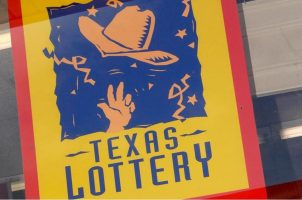Fanatics Files for Gaming Trademark, Latest Move Toward Sports Betting
Posted on: May 23, 2022, 09:50h.
Last updated on: May 24, 2022, 12:43h.
Fanatics has yet to launch a sports betting application. But the online sports apparel retailer moved closer to that goal recently by applying to trademark the term “BETFANATICS.”

According to a search of the US Patent and Trademark Office (USPTO) database, the Florida-based company made the filing last Tuesday. Trademark attorney Josh Gerben first reported the news on Monday via Twitter.
The USPTO filing indicates the “BETFANATICS” brand name would be used for a “downloadable mobile application for betting and gaming.” The description referenced not just sports betting, but online casino gaming, poker tournaments, and horse racing. That does not mean Fanatics online app would carry all of those services.
A message to Fanatics was not returned on Monday.
This is not the first time that the online retailer has filed a gaming-related trademark. Last October, the company filed to trademark “FANATICS SPORTSBOOK” and “FANATICS CASINO.”
According to the website for Gerben’s intellectual property law firm, federal officials typically take up to four months to review trademark applications. The entire process of registering the trademark can take 10 months in normal cases.
Fanatics Other Sports Betting Moves
Fanatics has made it clear for quite some time that it will venture into sports betting. Last June, it signed former FanDuel CEO Matt King to lead the company’s efforts into gaming.
Since then, there have been a number of rumors and reports about Fanatics acquiring an existing gaming company. That would be similar to its track record, as the company has acquired sports trading card company Topps, authentic nostalgia sportswear maker Mitchell & Ness, and former MLB uniform provider Majestic Athletic.
However, last month it was reported that Fanatics would purchase a technology platform from British-based solutions provider Amelco. That could indicate Fanatics may launch its own brand without buying out an existing operator.
Fanatics did try to break into sports betting last year by applying for a license in New York, even including rap superstar and media mogul Jay-Z as part of its team. However, the New York State Gaming Commission did not select its application as a finalist.
California, Here They Come?
There may not be an official clock – at least publicly – as to when the privately held company seeks to launch its sports betting operations. However, the company may have some motivation to get itself established sooner rather than later.
Fanatics is one of seven companies that joined forces to get a voter referendum on the California general election ballot this November that would amend the state’s constitution and legalize online sports betting. Currently, elections officials across the state are going through the petitions to determine if organizers got the 997,139 valid signatures from registered voters needed to put the question before voters later this year.
The sportsbooks’ petition drive netted about 1.6 million signatures.
Should the question make the ballot and voters approve it (it faces staunch opposition from tribal gaming interests), then online sports betting operators could begin launching apps on or before Aug. 28, 2023. The referendum calls for the amendment to take effect on Jan. 1, 2023, and operations can start within 240 days of that date.
But the operators (or in Fanatics’ case, aspiring operator) behind the referendum also put some serious stipulations behind getting a license in the most populous US state. Besides shelling out $100 million for the license fee, online operators in California would need to hold sports betting licenses in at least 10 states. There’s also a provision allowing operators to be licensed in just five states if they own or operate a dozen Class III casinos.
That essentially gives Fanatics about 15 months to have its infrastructure in place to be ready for a California launch, provided the measure passes.
Of course, the company could wait to launch later in California. But in doing so, they would run the risk of having to catch up with operators who are already established. That’s why it seems a quicker move or acquisition seems to be Fanatics’ best bet.
Related News Articles
FanDuel to Be New York Yankees Official Sports Betting Partner
Caesars Plans Sportsbook Truck Tour as Digital Marketing Efforts Shift Gears
Disney CEO Bob Iger Lukewarm on Sports Betting
Most Popular
Cracks Emerging on Las Vegas Strip Says Analyst
Casinos That Were Never Casinos
Most Commented
-
End of the Line for Las Vegas Monorail
— April 5, 2024 — 90 Comments -
Mega Millions Reportedly Mulling Substantial Ticket Price Increase
— April 16, 2024 — 9 Comments -
Sinclair Broadcast Group Selling 7.91 Million Bally’s Shares
— April 12, 2024 — 5 Comments
















No comments yet